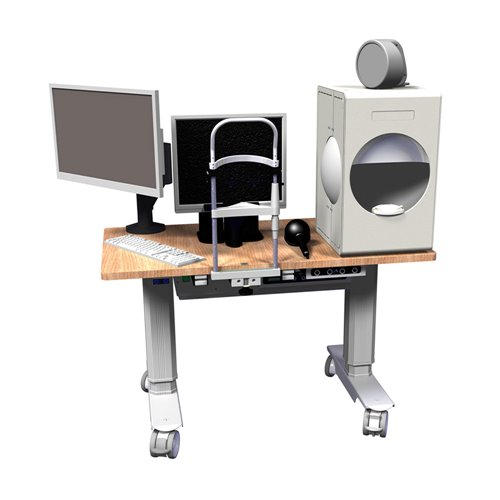
Visual Evoked Potentials (VEP) is a neurophysiological test used to assess the visual system of patients. This test measures the speed and quality of processing visual information from the eye to the brain. VEP is used by the expert physicians at SEVGİGÖZ to assist in the diagnosis and monitoring of many eye diseases by evaluating the function of visual system components such as the visual cortex and optic nerve.
Electrical activity in the brain is measured while visual stimuli are presented to the individual. Light stimuli from the eye are transmitted to the visual cortex via the optic nerve, and the electrical signals generated during this process are recorded with VEP testing.
This test is used in the evaluation of many eye diseases. In particular, VEP testing plays an important role in the diagnosis of conditions such as optic nerve damage, multiple sclerosis, optic nerve tumors, and optic nerve inflammation. Additionally, it can be used to determine the degree of vision loss caused by diseases such as Glaucoma, Diabetic Retinopathy, and Macular Degeneration.
Electrical activity in the brain is measured while visual stimuli are presented to the individual. Light stimuli from the eye are transmitted to the visual cortex via the optic nerve, and the electrical signals generated during this process are recorded with VEP testing.
This test is used in the evaluation of many eye diseases. In particular, VEP testing plays an important role in the diagnosis of conditions such as optic nerve damage, multiple sclerosis, optic nerve tumors, and optic nerve inflammation. Additionally, it can be used to determine the degree of vision loss caused by diseases such as Glaucoma, Diabetic Retinopathy, and Macular Degeneration.




